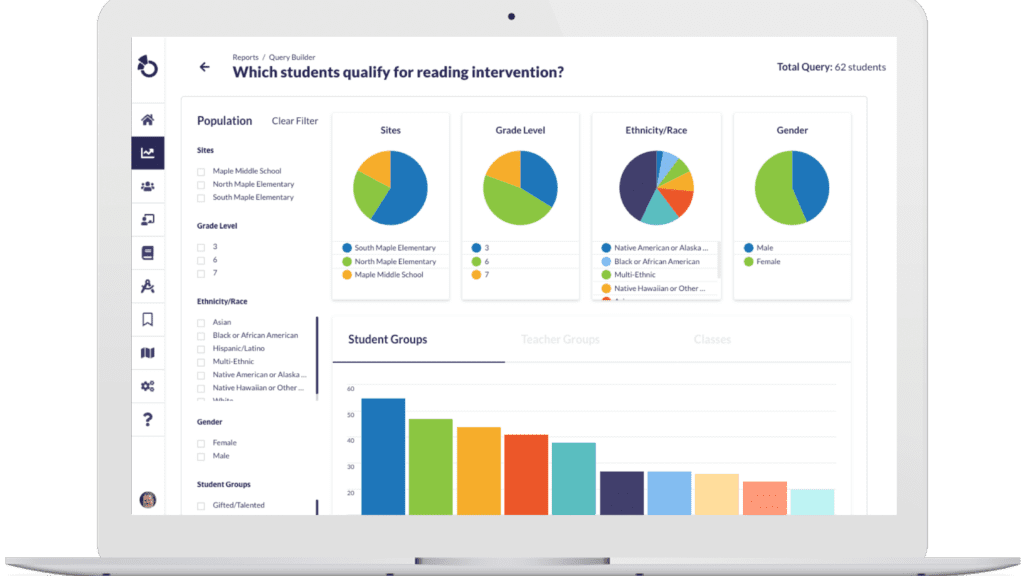3 Questions School Leaders Should Ask to Evaluate the Impact of PLCs
By: David Specht
Professional Learning Communities (PLCs) have emerged as a vital component in modern education, providing a dynamic platform for educators to collaborate, share expertise, and enhance teaching and learning. But how can school leaders effectively gauge the impact of their PLCs? The key lies not only in the questions we ask within these communities but also in leveraging the right tools to uncover meaningful answers. Exploring the three pivotal questions outlined below can assist K-12 administrators and educators in evaluating the effectiveness of their PLCs, ensuring they are a driving force for positive change in student learning and achievement.
3 Key Questions for Evaluating PLC Effectiveness
1. What evidence is there that our PLCs are positively impacting student learning and achievement?
-
- Why It Matters: This question is fundamental. It prompts educators to look beyond the surface and examine tangible evidence of their PLC's influence on students. By focusing on concrete data, such as test scores, project outcomes, or classroom engagement levels, educators can discern the direct impact of their collaborative efforts. For example, a PLC focusing on literacy in a middle school may find that its collaborative strategies have led to a noticeable increase in reading comprehension scores across the grade, as evidenced by standardized test results and in-class assessments.
Growing Your PLC: Understanding this impact allows educators to celebrate successes and identify areas needing improvement, fostering a culture of continuous growth and development. In the literacy example, the PLC can use the improved reading scores as a benchmark for success while also examining areas where students might still be struggling. This ongoing analysis enables the PLC to refine its strategies, perhaps by introducing more targeted reading interventions or expanding its methods to encompass a wider range of literacy skills, thereby continually enhancing its educational impact.
2. Have there been measurable improvements in student outcomes that can be attributed to initiatives or strategies developed within the PLC?
-
- Why It Matters: This question encourages educators to link specific strategies or initiatives born in PLCs to actual student outcomes. It's about drawing a clear line between the collaborative work of educators and the resultant changes in student performance. For instance, if a PLC dedicated to enhancing math skills implements a new problem-solving approach, and subsequently, the school observes a consistent rise in math scores in standardized tests and classroom assessments, this can be seen as a direct outcome of the PLC's initiative.
-
- Growing Your PLC: By measuring these outcomes, educators can validate the effectiveness of their strategies or pivot to new approaches, ensuring that PLCs are dynamic and responsive to student needs. In the case of the math problem-solving approach mentioned earlier, the observed rise in math scores not only confirms the success of the strategy but also prompts the PLC to explore further enhancements or additional innovative techniques, thereby continuously evolving and improving their teaching methods in response to student performance data.
3. Are there examples of new teaching strategies or approaches that have been implemented as a result of the PLC?
-
- Why It Matters: This question highlights the innovative aspect of PLCs. It's not just about improvement but also about innovation in teaching practices. For instance, a PLC might develop a new approach to integrating technology in the classroom, such as using interactive software for math instruction. This not only enhances student engagement but also introduces a novel way of teaching complex concepts, demonstrating the PLC's role in fostering educational innovation.
Growing Your PLC: Identifying and sharing these new strategies across the school or district can lead to a broader impact, inspiring a culture of creativity and experimentation in teaching methods. When the success of the interactive math software is shared, other teachers might be encouraged to explore similar digital tools in their subjects, leading to a school-wide enhancement in the use of technology for education. This ripple effect underscores the value of PLCs in not only improving but also revolutionizing teaching and learning practices.
Harnessing Technology for Evidence-Based PLC Insights
The power of PLCs is not just in the collaboration they foster but also in the actionable insights they can provide, and technology plays a pivotal role in this process. By offering tools that help educators collect, analyze, and interpret data, technology can transform the way PLCs impact student learning. With the right technology in hand, educators can not only ask the right questions but also find the answers that drive meaningful change.
The integration of Otus into Professional Learning Communities (PLCs) offers a transformative approach to addressing the three critical questions outlined above. Otus simplifies and enhances the PLC process in several key ways, directly impacting student learning and achievement.
Data-Driven Insights: Otus provides a centralized platform for real-time student data, allowing educators to focus on analyzing and acting on this information rather than spending time gathering and organizing it. This feature aligns perfectly with the need to evaluate the impact of PLCs on student learning, as it offers tangible evidence of student progress and outcomes.
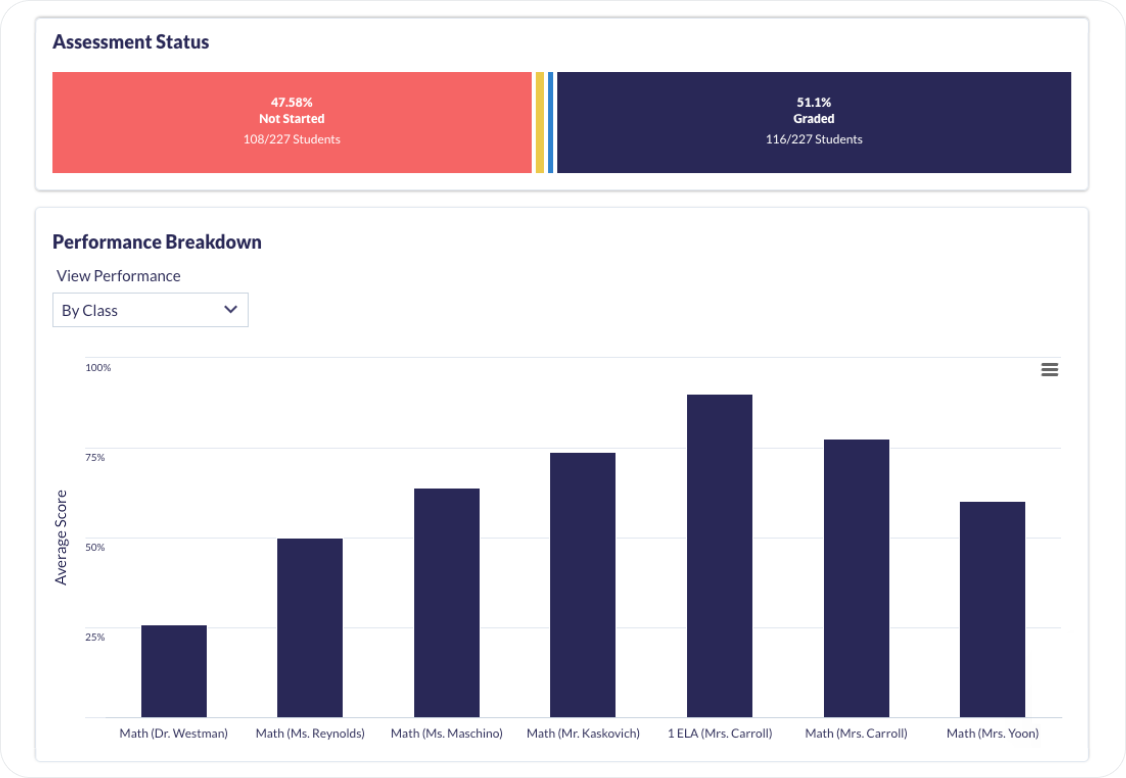
Otus enables educators to analyze student performance by class, subgroup, question, and learning standard.
Collaborative Tools for Innovation: The ability to collaboratively build formative assessments and share resources within Otus fosters an environment that is essential for PLCs. This directly supports the goal of implementing new teaching strategies and approaches, as educators can easily share and adapt successful practices across the school or district.
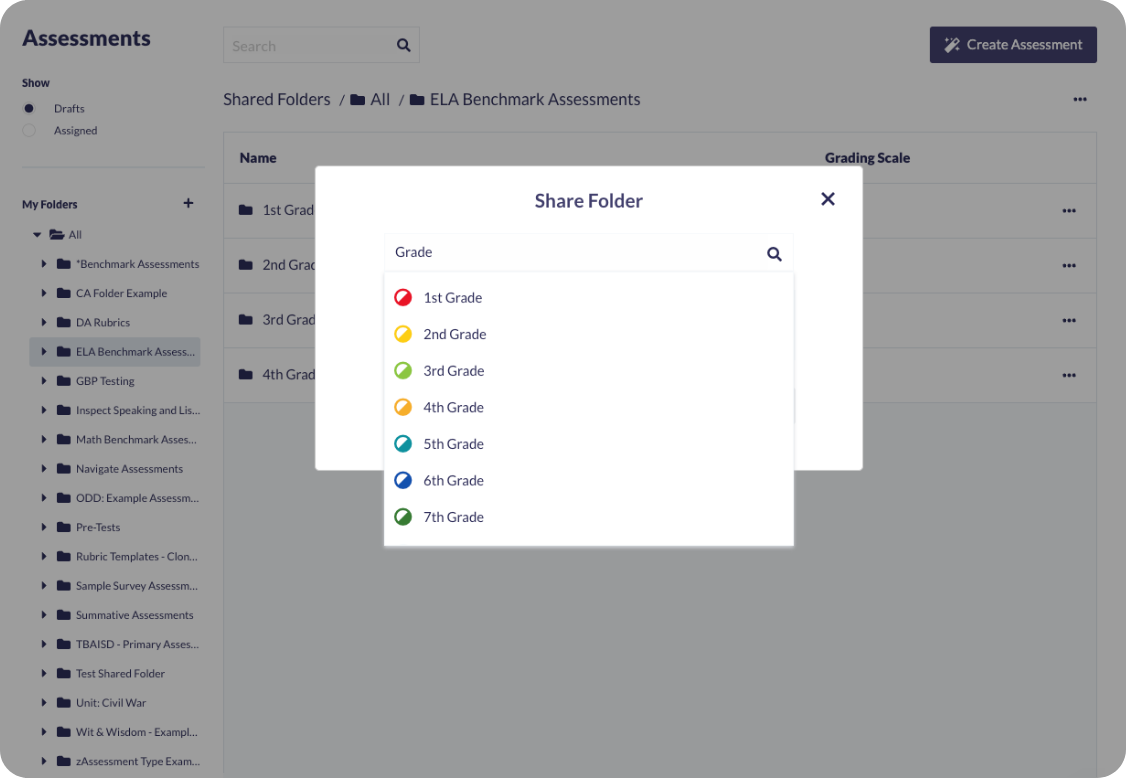
Easily share assessments with other Otus educators, while having control of what assessments can be copied and edited.
Targeted Interventions and Enrichment: By creating student groups from assessment data and assigning tailored interventions or enrichment resources, Otus helps educators address the diverse needs of students. This capability is crucial for answering whether PLC-initiated strategies are leading to measurable improvements in student outcomes.
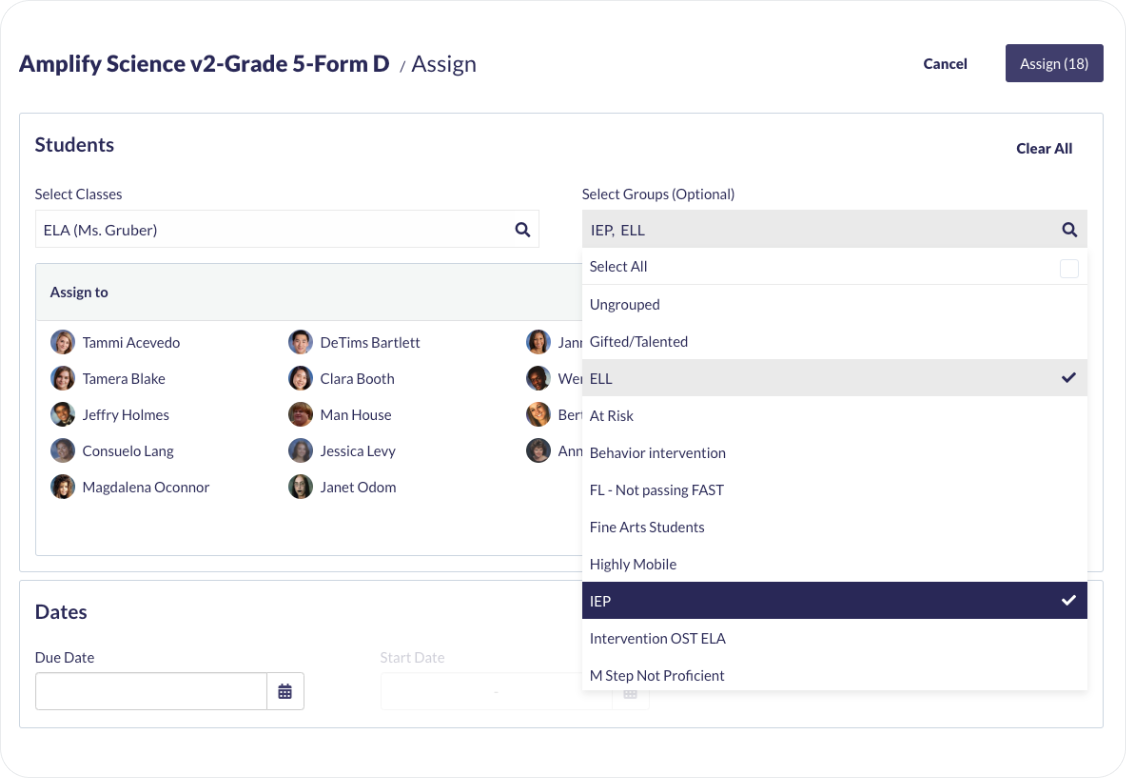
Otus enables educators to easily differentiate and assign out content based on student need.
Clarity and Goal Setting: Otus aids in setting clear goals and success criteria for lessons, which is vital for PLCs. This clarity ensures that all educators are aligned in their efforts, working toward common educational objectives, and effectively measuring progress.
Historical Assessment Tracking: The platform's ability to track a student's performance over time provides a complete picture of their educational journey. This feature is invaluable for PLCs as it helps in identifying long-term trends and making informed decisions about student needs and strategies.
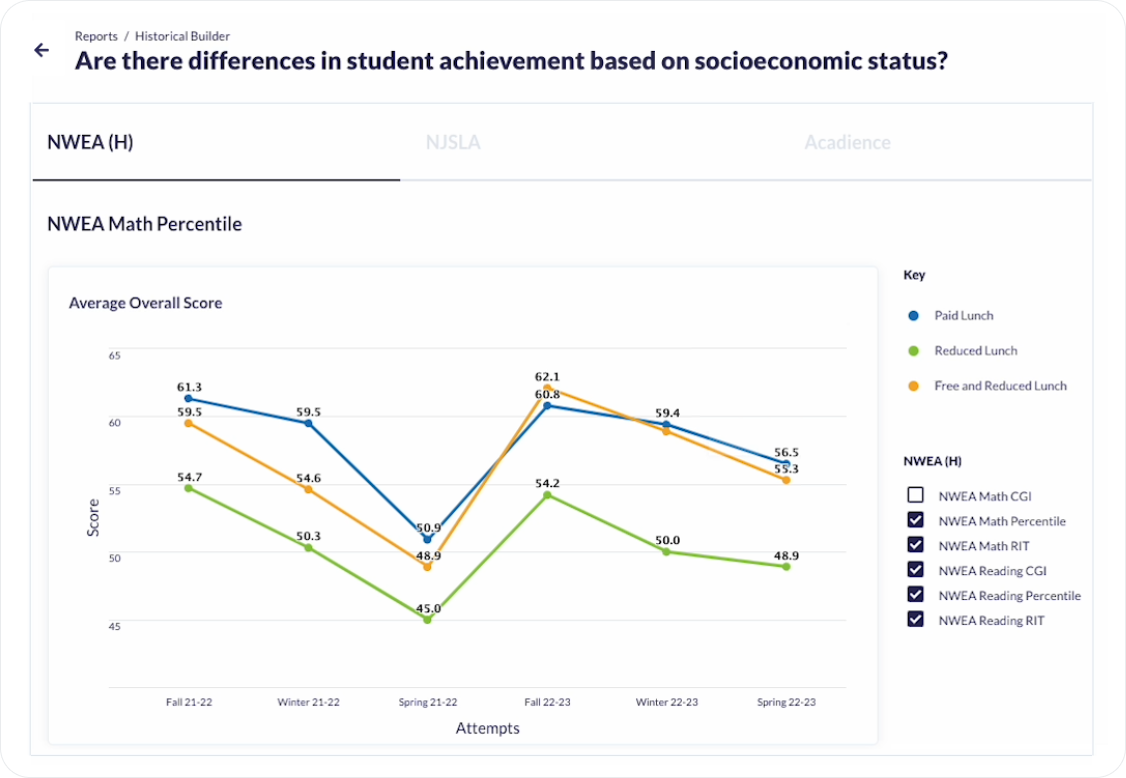
Educators can create custom reports in Otus to track and compare different student groups’ progress over time, considering factors such as race, special education, attendance, and more.
Facilitating Effective Collaboration: Otus not only promotes the sharing of resources and strategies but also ensures consistent communication among educators. This aspect of the platform strengthens the collaborative foundation of PLCs, ensuring that all members are aligned and working cohesively toward ensuring student success.
Connect with an Otus expert to learn more
By providing robust data analysis, facilitating collaboration, and supporting targeted instructional strategies, Otus empowers PLCs to improve student outcomes. Connect with our team and take a closer look at Otus!
Request a demo!
See exactly how Otus can help your school accelerate student growth and improve student outcomes – all while saving educators time.
